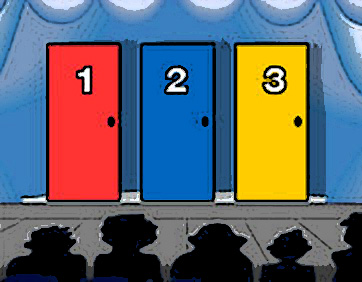 There is a story about a man piloting a small boat in an early morning deep fog on a large lake nestled in the forests of Maine. The man was fastidious by nature and always took great care. He prided himself on the excellence of his sailing skills, and greatly enjoyed the peace and calm he felt on his frequent outings on the lake. As he slowly and meticulously made his way through the heavy mist, another small boat suddenly loomed out of the haze and caromed into the side of his craft. The man instantly began cursing the stupidity and incompetent navigating ability of the pilot of the other boat. Consumed with fury and with righteous indignation, he prepared for a confrontation, only to have it all dissipate in a fraction of an instant as he realized that the other boat was pilotless, adrift, empty, devoid of any human guidance.
There is a story about a man piloting a small boat in an early morning deep fog on a large lake nestled in the forests of Maine. The man was fastidious by nature and always took great care. He prided himself on the excellence of his sailing skills, and greatly enjoyed the peace and calm he felt on his frequent outings on the lake. As he slowly and meticulously made his way through the heavy mist, another small boat suddenly loomed out of the haze and caromed into the side of his craft. The man instantly began cursing the stupidity and incompetent navigating ability of the pilot of the other boat. Consumed with fury and with righteous indignation, he prepared for a confrontation, only to have it all dissipate in a fraction of an instant as he realized that the other boat was pilotless, adrift, empty, devoid of any human guidance.
I like this allegory because it rings true to me——I can see myself or others I know reacting similarly——and because of the exceedingly abrupt state changes:
– cold state/calm
– hot state/anger
– cold state/understanding
The tale sparks searching, learning questions in my mind: How can we humans undergo such rapid emotional swings? Where did this man’s anger come from? Where did the anger go? From what frame, from what paradigm, did the anger spring? What view of the world, what expectations, created the anger? What model of the world, what outlook on life, what social norms, made the anger dissipate? And how can we use this illustrative parable to enhance our understanding, to learn how better to master our emotions?
If life, haphazard circumstances, random events, can trigger us to such extremes, how can we elbow chance and chaos aside on the command deck and take control of ourselves?
The key lies in how we choose to interpret what happens to us in life, for our emotions very much reflect our ingrained belief system.
Can we choose to see the world in ways that reduce our stress, that give us greater equanimity, ways that lead to greater calm and peace of mind, which in turn leave us in a better state to deal with however things turn out?
Some tell me that reality is reality, so where is the flexibility in interpretations? I reply there are in excess of six billion people in the world, each with a unique set of DNA, individual experiences, their own upbringing, their own personalities, and their own opinions and points of view. Therefore, I suggest there are six billion different takes on every situation and event, thus six billion realities.
Occasionally a Customer Service issue will come up in my business and someone will argue that the Customer’s interpretation of events is wrong, that the Customer’s view of reality is incorrect. I reply, “Well, that may be, but this Customer’s view may lead her to not renew her lease, and that is a hard reality we do not want.”
If you believe it is true, it is true for you. And if you act on your belief, for you it further solidifies that truth, and you will continue to strengthen and support that reality.
Most events can be framed in multiple ways, frequently depending upon the motivations you ascribe to those involved.
Choose stories, choose interpretations, that empower you, that positively energize you, that make the world a better place, that help you and others move forward on your path.
Closing Quote: “A man who is master of himself can end a sorrow as easily as he can invent a pleasure. I don’t want to be at the mercy of my emotions. I want to use them, to enjoy them, and to dominate them.” — Oscar Wilde, 1854-1900


0 Comments